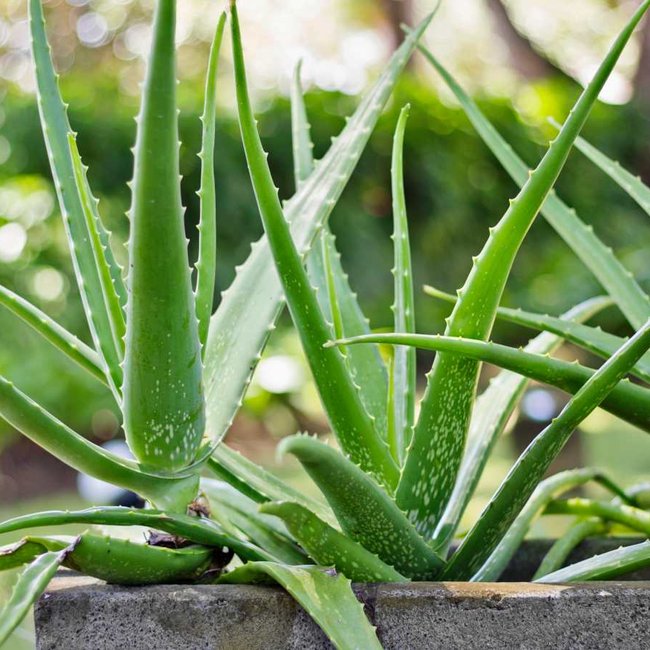Eggplant
Eggplant (Solanum melongena) is a species of nightshade grown for its edible fruit. Eggplant is classified as a vegetable and is a member of the Solanaceae family which includes tomatoes, potatoes, and peppers.
Classification and Taxonomy
The scientific name for eggplant is Solanum melongena. It is classified as a vegetable, and is a member of the Solanaceae family.
Description and Characteristics
Eggplant is a perennial plant that grows to a height of about 3 feet. The fruit is oval-shaped and typically dark purple in color. The flesh is white and spongy, and the seeds are small and black.
Distribution and Habitat
Eggplant is native to India, and is now grown in many parts of the world. It prefers warm climates and is usually grown in tropical and subtropical regions.
Ecology and Reproduction
Eggplant is pollinated by insects such as bees and butterflies. The flowers are white and produce small, dark purple fruits.
Uses and Economic Importance
Eggplant is a popular vegetable used in many dishes around the world. It is also used to make pickles, sauces, and jams.
Conservation Status
Eggplant is not considered to be threatened or endangered.
-
What is an eggplant?
Eggplant, also known as aubergine, is a fruit that belongs to the nightshade family. It is typically purple in color and has a meaty texture with a slightly bitter taste. Eggplant is widely used in Mediterranean, Middle Eastern, and Asian cuisines as a versatile ingredient in dishes such as moussaka, baba ganoush, and stir-fries.
-
How do you grow eggplants?
Eggplants require warm temperatures to grow and thrive. They should be planted in well-draining soil with plenty of organic matter. Eggplants prefer full sun and should be watered regularly, but not over-watered. It is important to keep an eye out for pests such as flea beetles and aphids, which can damage the plants. Eggplants can be started from seed indoors or planted as seedlings outdoors.
-
Are eggplants good for you?
Yes, eggplants are a nutritious addition to any diet. They are low in calories and high in fiber, which can help with digestion and weight management. Eggplants are also a good source of vitamins and minerals such as potassium, magnesium, and vitamins C and K. Additionally, eggplants contain antioxidants that can help protect against certain diseases.
-
Can you eat raw eggplant?
While eggplants can be eaten raw, they are often cooked to improve their texture and flavor. Raw eggplants have a slightly bitter taste and can be tough to chew. Cooking eggplants can help to soften them and bring out their sweet and savory flavors. Some popular cooking methods for eggplants include roasting, grilling, and baking.
-
How do you know when an eggplant is ripe?
Ripe eggplants should be firm to the touch with smooth, shiny skin. The skin should be a deep, uniform color, and the eggplant should feel heavy for its size. Overripe eggplants will have dull, wrinkled skin and may feel mushy when squeezed. Underripe eggplants will have a hard texture and may have a bitter taste. It is important to harvest eggplants when they are ripe to ensure the best flavor and texture.
-
How do you store eggplants?
Eggplants should be stored in a cool, dry place, such as a pantry or vegetable drawer in the refrigerator. If storing in the refrigerator, it is best to keep them in a perforated plastic bag to allow for air circulation. Eggplants can be stored for up to a week, but it is best to use them as soon as possible for optimal flavor and texture. It is not recommended to freeze eggplants as their texture can become mushy and unappetizing.
-
Can eggplants be cooked in the microwave?
Yes, eggplants can be cooked in the microwave. To do so, pierce the skin of the eggplant with a fork in several places to allow steam to escape. Microwave the eggplant on high for 5-8 minutes, or until it is soft to the touch. Let the eggplant cool before slicing it open and removing the flesh. The microwave method is a quick and easy way to cook eggplants, but it may not result in the same depth of flavor as other cooking methods such as roasting or grilling.
10 Fun Facts About
1. Eggplants are actually a fruit, not a vegetable. 2. The eggplant is a member of the nightshade family, which includes tomatoes and potatoes. 3. The eggplant is believed to have originated in India. 4. The eggplant is a low-calorie food, with only 35 calories per cup. 5. The eggplant is a good source of dietary fiber, vitamins, and minerals. 6. Eggplants have been cultivated for over 4,000 years. 7. The eggplant is the national vegetable of India. 8. The eggplant is a symbol of fertility in some cultures. 9. Eggplants are used to make a variety of dishes, including baba ghanoush and ratatouille. 10. Eggplants are believed to have medicinal properties and are used to treat some illnesses.
Pun
Don't let the eggplant go to your head!
Similar To
Tomato, Potato, Pepper, Squash Keywords: Eggplant, Solanum melongena, Nightshade, Vegetable, India, Fertility, Medicinal Properties








